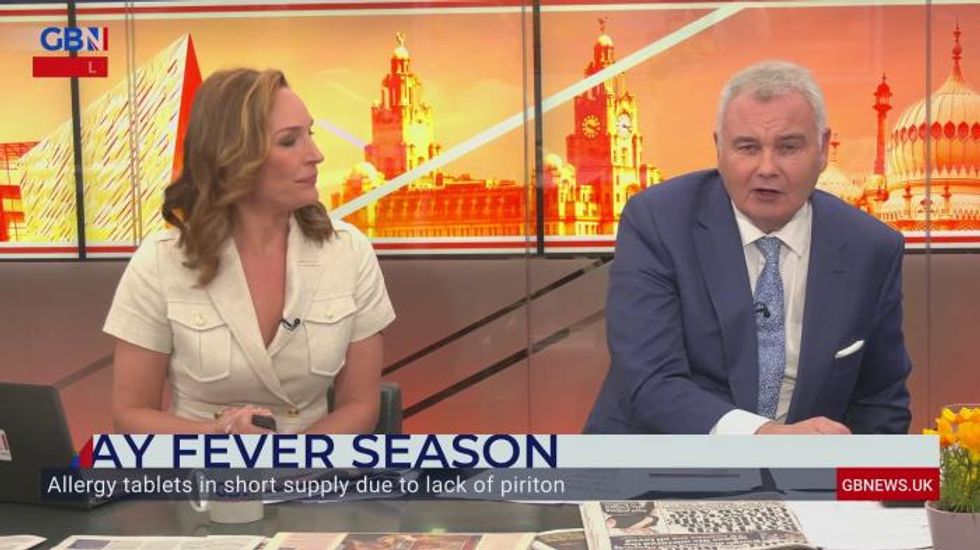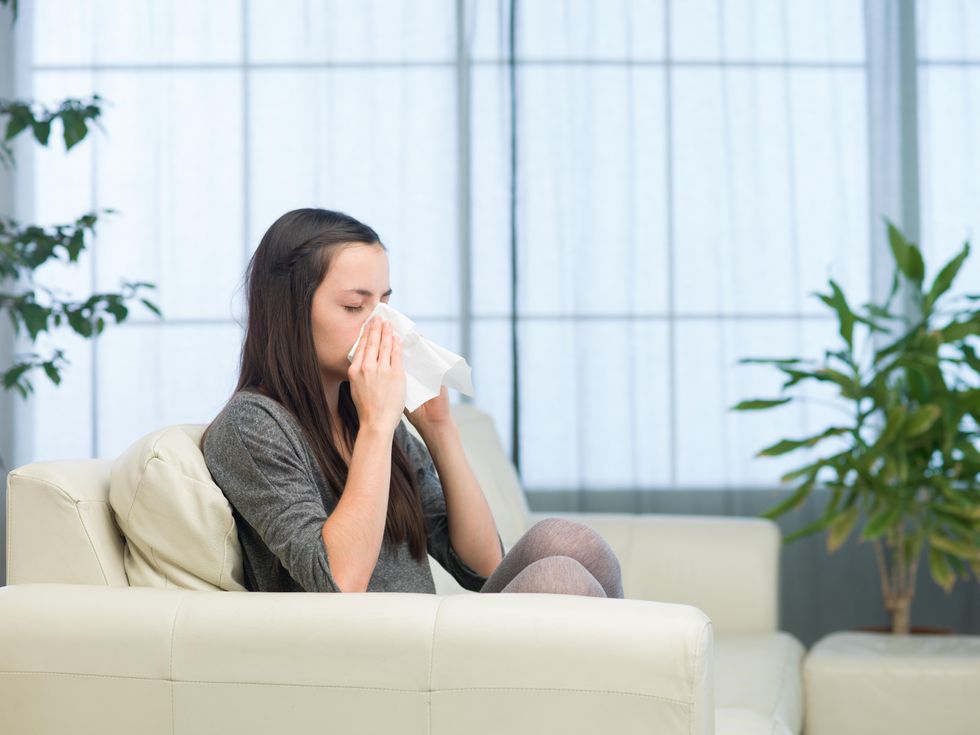Hay fever home remedies listed as UK hit by Piriton shortage
Doctor Sara Kayat appeared on GB News to advise hay fever sufferers on how to cope with the shortage of common allergy drugs
Don't Miss
Most Read
Latest
The top hay fever home remedies have been listed on GB News amid a shortage of common allergy drugs.
Britain has been hit by a Piriton shortage caused by a lack of chlorphenamine maleate.
Boots, Lloyds Pharmacy and Coop Pharmacy have all run out of the drug online, and the Met Office has forecast high pollen counts over the next few days.
While some people will welcome the warmer weather, for others the unusual temperatures will wreak havoc with their hay fever symptoms.
Dr Sara Kayat told GB News how to tackle hay fever without the most common medication
A woman sneezing
PA Features Archive/Press Association Images
She told us: "It sounds silly but putting vaseline round your nostrils just on the inside helps trap the pollen so it doesn't go into your respiratory system.
"Sunglasses that are a bit more wraparound to stop the pollen from going into your eyes.
"When you enter your house having been outside, the first thing you should do is take off your clothes, put them in the wash and get in the shower.
"Washing your hair and everything to get off all that pollen."
Experts are warning that rising temperatures may cause tree pollen levels to spike across the UK.
It is thought climate change may be leading to an extension of the grass and tree pollen season, with it starting earlier.
And people who suffer from hay fever believe pollution (64%), rising temperatures (52%) and extreme weather conditions (38%) are the biggest environmental factors impacting their allergies.
The new research from Kleenex surveyed 2,000 people in the UK with hay fever and found that over the past 12 months many have experienced their symptoms getting worse.
This includes sneezing (72%), itchy eyes (64%) and a runny nose (48%).
One third of those polled admitted to staying indoors because their allergies are too severe, while 12% said they have called in sick to work.
The survey found that on average, increased symptoms for allergy sufferers resulted in a loss of two hours’ sleep a night, and 33% of those surveyed said they avoid local parks and green spaces.
A quarter (25%) wrongly self-diagnosed their hay fever symptoms for Covid-19.
According to the research, more than half (58%) of allergy sufferers did not know what pollen they were allergic to, and only a fifth (20%) recognised their symptoms for what they are.












